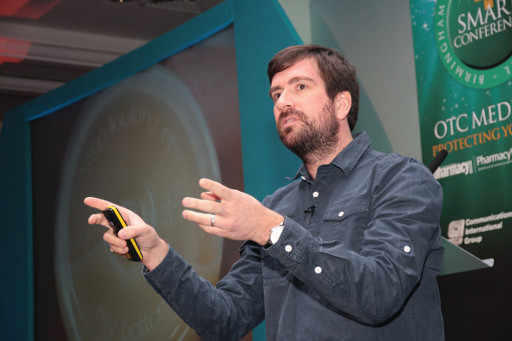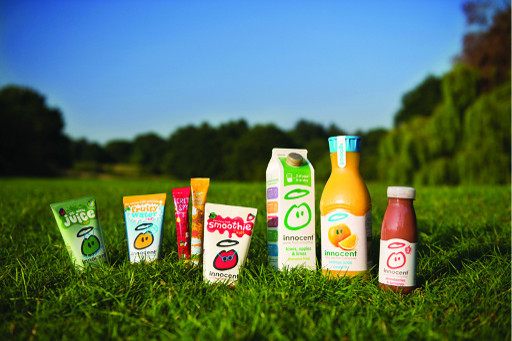SMART Conference 2015: the age of innocent
In News
Follow this topic
Bookmark
Record learning outcomes
The keynote speaker at this year's SMART Conference was one of the founders of the healthy drink company, innocent €“ Dan Germain. Asha Fowells reports

Listening to Innocent's Dan Germain at last month's SMART conference was an unusual experience. Keynote speeches can all too often be self-serving, stuffy and dull, but this wasn't the case for the delegates sitting in a function room at the Birmingham Hilton Metropole hotel.
Instead, Mr Germain was informal, chatty and entertaining, eschewing slide handouts for a series of anecdotes about how the company grew from a group of university friends deciding in 1998 to start a business €“ any business €“ to the number one smoothie brand in the UK and Europe. The firm employs over 300 people, has an annual turnover of £200m and was an official sponsor of the London 2012 Olympic and Paralympic Games.
Here are some of the rules by which Innocent operates:
Start small, but do start
Given that Innocent hasn't been going for even 20 years, it is easy to think that the founders knew exactly what they were doing from the start. Not so, says Mr Germain, who recounted how he and his friends started on their journey by buying a load of cheap fruit, making it into smoothies in the kitchen of their flat and selling it at a local music festival.
Buyers were asked to put their empty bottles into different bins depending on whether or not they enjoyed the product and the feedback gave the team the confidence to give up their jobs and concentrate on setting up the business.
The critical point is that the Innocent founders overcame their nerves and acted on their idea. The same principle can be applied to any business: only one that is out there has a chance of success. So if there is the germ of an idea for a pharmacy service, it can be made available with little investment in equipment and training and then the feedback obtained from customers can be used to move the initiative to the next level.
Keep the main thing the main thing
Dan Germain attributes much of Innocent's success to the company more or less sticking to what it knows, no matter how tempting other ideas (such as expanding into ice cream or opening a green power company) might have seemed at the time. €We kept it simple because we are just normal people,€ he commented.
Pharmacy is no different and it is worth remembering that companies that have attempted to diversify into other areas €“ dentistry, anyone? €“ have often gone on to shut down these ventures and return to what they know best: healthcare and medicines.
Use your own voice
Being distinctive isn't necessarily a bad thing, nor does it suppress experimentation, says Mr Germain, highlighting film directors such as Wes Anderson and Woody Allen as examples of people doing something in a highly individual way, yet constantly finding new angles and subject matter.
Pharmacy can do much the same by providing customers with great knowledge and service, but expanding its areas of expertise. An example might be an emergency hormonal contraception scheme that can be broadened out to include sexual health problems.
Be interesting
There are several companies making smoothies, yet more people choose Innocent, says Mr Germain. Given that Innocent smoothies are not the cheapest product within their category, they must have a reason for doing so, he points out, suggesting that it is the €bits around the edges€, such as the random facts given on product packaging and perceived €personality€ of the brand that are influential.
Pharmacy is delivered by people, which puts it in the perfect position to provide healthcare that stays with the public and makes them more likely to return in the future as well as recommend it to others. Staff are what build customer loyalty.
Be consistent
Well-known brands such as Heinz and Coca Cola have changed little over the years, respecting their heritage and therefore preserving public familiarity, highlights Mr Germain. A lot of this is to do with branding €“ water company Perrier, for example, has retained its distinctively shaped green glass bottle for decades.
Most people will understand the annoyance experienced when something alters, such as a supermarket layout. Changes that are made in pharmacies need to be mindful of and sensitive to this resistance to change.
Never listen to no
Good entrepreneurs are repeatedly told no, says Dan Germain, describing how the early days of Innocent were plagued with rejections from banks, potential investors and suppliers. Instead of this getting them down, it strengthened their resolve and they determined to turn the 'no' into a 'yes', which is eventually precisely what happened.
In pharmacy, if it feels right to do, it probably is. So just because there isn't funding available for a new service doesn't mean it isn't a good idea. Perseverance backed with a sound business plan will ultimately win through.
Conversation is free
Innocent has an exceptional social media presence, as illustrated by the fact that 8 per cent of the company's posts on Facebook are shared or liked. While this figure may not seem significant, it is considerable when compared to other social media-savvy organisations such as Google and Nike, which hover between 1 and 2 per cent.

Dan Germain puts this down to €conversing with people in their own language€ by having individuals at Innocent HQ responsible for posting status updates that they find curious or entertaining rather than trying to promote some form of corporate message. €Be able to talk to anyone and deal with every situation,€ he says, by taking care to €listen up and open up€.
This is true across all businesses: customers are key to survival. Pharmacies need to listen to what people say they want and need from them, rather than assuming they know best, and engage in a two-way dialogue so customers know they are being heard.
Honesty is also of paramount importance: people won't pass judgement on someone who doesn't know something as long as they are open about it and know where to look to obtain the information. Similarly there is much to be gained in terms of trust by admitting to and apologising for mistakes if they occur.
